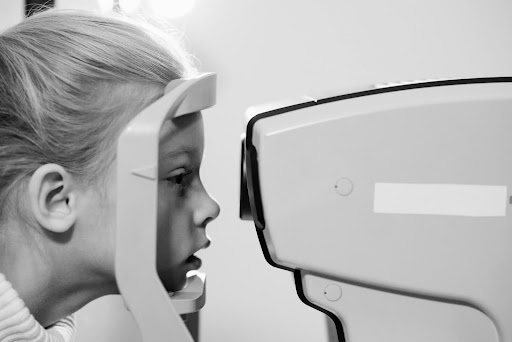Introduction to Pediatric Eye Health
Vision plays a pivotal role in the growth and educational development of children. Ensuring that your child has regular pediatric eye exams is crucial for detecting vision issues early, which can significantly influence their academic and social progress. Eye exams are not just about checking whether your child needs glasses but also about assessing the health of their eyes.
Why Pediatric Eye Exams are Essential
Children’s eyes change rapidly, and visual issues can develop without obvious symptoms, making routine eye exams vital. These exams can detect conditions such as amblyopia (lazy eye), strabismus (crossed eyes), and refractive errors like myopia (nearsightedness) and hyperopia (farsightedness). Early detection through pediatric eye exams can prevent or reduce long-term vision problems that could affect a child’s ability to learn and engage in daily activities.
The Right Age for the First Eye Exam
Many parents wonder about the appropriate age to begin eye exams. According to eye care professionals, the first comprehensive eye exam should be at six months old. This early assessment is crucial as it can help identify any congenital eye conditions that could have long-term effects if not treated promptly. Subsequent exams are recommended at age three and before starting school, with regular check-ups every two years if no vision correction is required.
What Happens During an Eye Exam?
A pediatric eye exam is tailored to the age and ability of the child. For infants, the focus is on checking that the eyes are developing normally. This involves tests to assess how well the eyes focus, track moving objects, and look for any signs of congenital eye conditions. As children grow, the exams become more comprehensive, including tests for visual acuity, eye alignment, and the health of the eye’s internal structures.
Benefits of Early Vision Correction in Children
Addressing vision problems early in life through regular pediatric eye exams can have significant benefits for a child’s educational and social development. Proper vision correction, whether through glasses or other treatments, can improve a child’s ability to focus in the classroom and participate in sports and other activities. This not only enhances their learning capabilities but also boosts their confidence and social interactions, laying a foundation for a healthy, active lifestyle.
Signs That Your Child Might Need an Eye Exam
Parents and teachers are often the first to notice signs that a child might need an eye exam. These signs include squinting, sitting too close to the television, difficulty reading, or complaints of headaches and eye fatigue. Observing any of these behaviors should prompt a visit to an eye care professional for a comprehensive eye examination.
Conclusion: Prioritizing Eye Health in Children
Regular pediatric eye exams are a crucial part of a child’s overall health routine. They ensure that children have the visual resources they need to succeed in school and their everyday lives. By prioritizing eye health and regular check-ups, parents can help safeguard their child’s vision and overall development. Remember, the key to healthy vision starts with regular examinations, as professionals at facilities specializing in pediatric eye care can provide the best guidance and treatment. Early detection and treatment are paramount in ensuring that your child’s vision aids rather than hinders their development.

